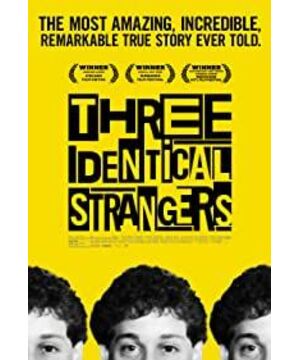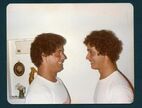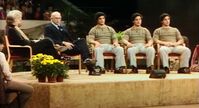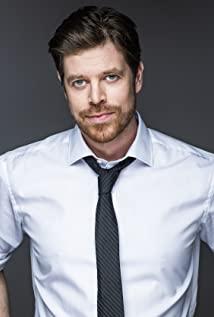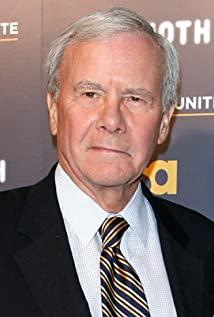First time watching a documentary in theaters. After buying the tickets, I was still debating whether to spend an hour and a half in the movie theater on a Friday night watching a documentary instead of other popcorn. However, there's absolutely a reason a documentary is in theaters; it's no less entertaining than other feature films.
The sensational nature of the event itself naturally played a decisive role in the brilliance of the film, and the director's handling was equally important. The documentary started from the beginning of the story, and was shot in full accordance with the timeline of the development of the story. The interviews with characters were interspersed with scenes restored by actors and a large number of real video materials. Use this method to show the audience how all participants really felt when the story took place.
From the reunion of long-lost brothers to the unraveling of the "conspiracy" behind them, the feelings of the participants have experienced joy, confusion and anger. This emotional transformation is completely displayed in front of the audience, without the slightest God's perspective and eloquence. However, being used to the flashbacks and flashbacks that are often used in documentaries, this kind of truth makes me feel deceived - the director has fully understood the ins and outs of the story when he was shooting, and he chose to use such a method just to manipulate audience's emotions. By showing only a portion of the facts at a time, the audience feels only the emotion the director wants to express. No one gets to see the whole story until the end of the movie.
However, although the significance of documentary lies in documentary, it is an artistic means after all, and the author's subjective choice cannot be avoided. Therefore, the director chose to show the whole event in chronological order, respecting the fact. But it is also because of this that the whole film has a story that ordinary documentaries do not have.
Another reason why this film is closer to a film than a documentary is that the film does not give a value judgment from beginning to end, nor does it explore the ethics behind the incident more deeply. That is, the author shows only the facts relevant to the subject that the public can see with great restraint, and does not wantonly ask for it. Whether this is good or bad, I can't judge.
The end of the film is the finishing touch to the whole film, raising an already wonderful documentary to theatrical standards. After the film ended, the cinema was specially turned off, and everyone sat quietly in their seats watching the credits roll across the screen, allowing the drama of the film to extend beyond the play.
View more about Three Identical Strangers reviews


